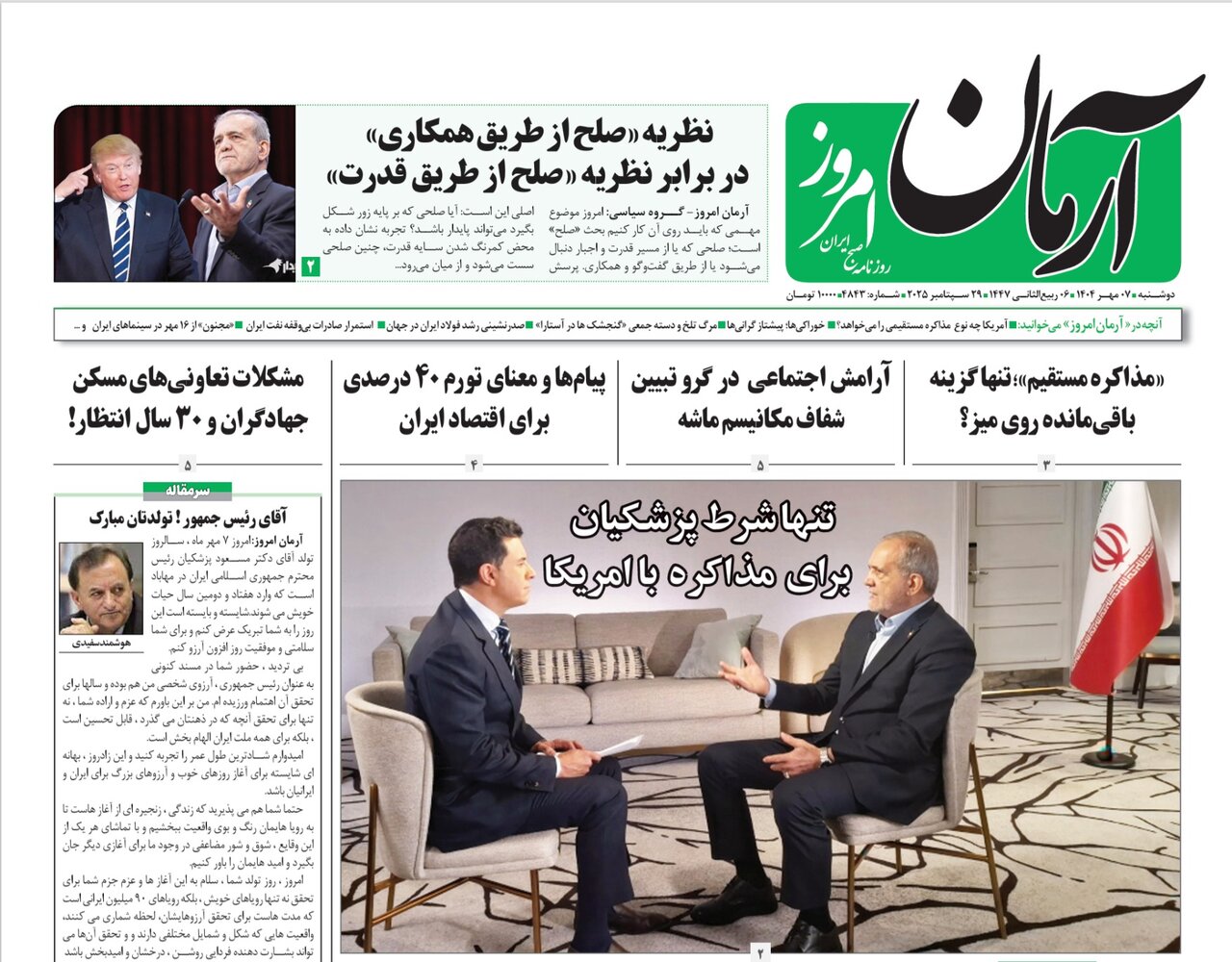“The death of JCPOA”: rejoicing, mourning, or adopting effective strategy?

TEHRAN - Arman-e-Emrooz analyzed the activation of the snapback sanctions by the European troika of Britain, France and Germany and Iran's strategy and wrote: With the activation of the snapback, the JCPOA case has been effectively closed.
Experts and analysts on foreign policy issues warn that focusing solely on mourning or rejoicing over the fate of the JCPOA not only will not benefit the country, but could also lead to an exacerbation of political and social divisions. According to these experts, the new conditions require the adoption of a comprehensive and multifaceted strategy in foreign policy to reduce the negative effects of the JCPOA death and create new opportunities to secure national interests. Based on this view, three main issues should be placed on Iran’s foreign policy agenda. First, strengthening national resilience and resistance, especially in the areas of the economy and people’s livelihoods. Second, increasing national power and cohesion in all areas so that the country can withstand external pressure. And, third is pursuing active, intelligent, and creative negotiations. The end of the JCPOA can be seen not as a failure of diplomacy, but as a turning point in the path of redefining Iran’s foreign policy.
Jam-e-Jam: The destruction of diplomacy and global consequences
Jam-e-Jam, in a note, addressed the betrayal of the European troika and said: On a night when the UN Security Council was supposed to be a symbol of global commitment to multilateral diplomacy, it became a scene of verbal tensions and diplomatic failures, and ended with the rejection of the draft resolution proposed by Russia and China. This failure was not only a warning for the future of the JCPOA, but also a clear symbol of the betrayal by the European troika and America. According to President Pezeshkian, Europe is disloyal. He warned that activating the snapback (sanctions) would not only make diplomacy meaningless but would also cause irreparable damage to global trust. The West’s actions are a symbol of the collapse of multilateral diplomacy. The President and Foreign Minister of our country are right in saying that the U.S. betrayed by withdrawing from the JCPOA, but Europe buried it by not confronting Washington. This betrayal destroyed Iran’s trust in the West and pushed Tehran towards other measures. From a global point of view, this event is an alarm for international treaties. If the Security Council cannot preserve the JCPOA, what hope is there for future agreements?
Shargh: Maximum pressure and the need to redefine strategy
With the official return of UN sanctions, the nuclear diplomacy has entered a new phase. The West is talking about continuing negotiations while by reviving all previous Security Council resolutions, it has imposed heavy political, economic, and psychological pressure on Tehran. It seems that the goal of this strategy is to force Iran to accept a comprehensive package of Western demands in all areas. Iran is now in a situation where it is facing economic pressure from Western powers, and the experience of the U.S. withdrawal from the JCPOA and Europe’s breach of its promises, as well as the experience of the 12-day war, have created a deep distrust of the real intentions of the Western parties. In such circumstances, Tehran must adopt a smart and multi-layered strategy; a strategy that, while maintaining deterrence and national interests, would allow it to utilize diplomatic capacities to reduce pressures and prevent further isolation. Although the return of sanctions makes the situation more difficult, it can also be an opportunity to reconsider foreign policy and define a more realistic mechanism for interacting with global powers.
Iran: Strategies for dealing with consequences of sanctions
In an interview with the Iran newspaper, Rahman Ghahremanpour, a prominent expert on international affairs, suggest a three-dimensional strategy to neutralize the Western-planned isolation of Iran after the European activation of the snapback sanctions with Washington’s help. Ghahremanpour said: To exit the isolation caused by UN sanctions and reduce its effects, we must pursue coherent strategies at three levels: domestic, regional, and international. At the domestic level, it is essential to carry out bureaucratic, administrative, and legal reforms to facilitate investment attraction, boost the industrial sector, reform trade laws, and reduce areas of administrative corruption so that business activists find more opportunities and create a promising environment for economic development. At the regional level, it is important to maintain a suitable environment for cooperation with neighboring countries, avoid tensions, and strengthen interaction and trade with them, given their willingness to cooperate with us. At the international level, expanding cooperation with China and, to a lesser extent, with Russia, along with focusing on strengthening relations with emerging powers. By implementing these strategies, we can gradually emerge from isolation and reduce the effects of sanctions.
Leave a Comment